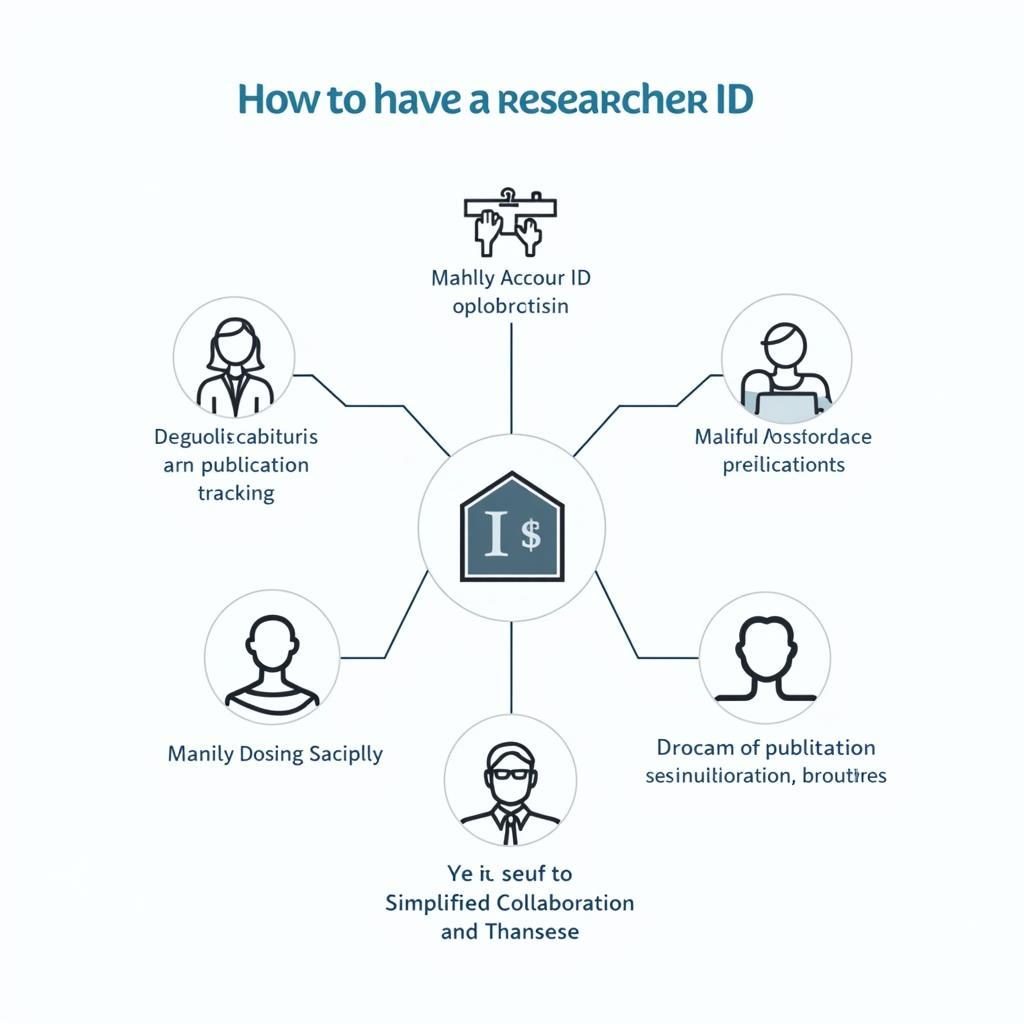In the vast and ever-evolving realm of academic research, establishing your unique identity is paramount. This is where a Research Id comes into play, acting as your digital fingerprint in the sprawling landscape of scholarly pursuits. Whether you’re a seasoned academic or just starting your research journey, understanding the significance of a research ID is crucial for maximizing your visibility and impact.
Demystifying the Research ID: Your Key to Recognition
A research ID is a persistent, unique identifier assigned to individual researchers. It allows you to confidently claim authorship of your work, ensuring that your publications and contributions are accurately attributed to you, even when name ambiguities arise. Think of it as your personal brand within the research community.
The Multifaceted Benefits of Embracing a Research ID
 Benefits of a Researcher ID
Benefits of a Researcher ID
Why should you, as a dedicated researcher, invest time in securing a research ID? The answer lies in the array of benefits it offers:
- Eliminating Ambiguity: In a world teeming with similar names, a research ID cuts through the confusion, ensuring your work is correctly attributed to you.
- Enhancing Discoverability: A research ID makes your research output easily discoverable by other scholars, fostering collaboration and knowledge sharing.
- Streamlining Publication Tracking: Easily track your citations, h-index, and other metrics, gaining valuable insights into your research impact.
- Unlocking Funding Opportunities: Many funding bodies now encourage or require a research ID, allowing them to assess your research profile efficiently.
Navigating the Research ID Landscape: Popular Choices
Several established platforms offer reliable research ID services, each with unique features:
- ORCID (Open Researcher and Contributor ID): Widely recognized and accepted, ORCID allows integration with various research systems.
- ResearcherID: Managed by Clarivate Analytics (formerly Thomson Reuters), ResearcherID links with the Web of Science database.
- Scopus Author ID: Connected to the Scopus database, this ID helps manage your author profile and publication list.
Choosing the Right Research ID: Factors to Consider
Selecting the most suitable research ID hinges on your specific needs and research discipline:
- Disciplinary Norms: Some fields have a preferred research ID. Check what’s common in your area of study.
- Platform Features: Compare features like integration with other systems, profile customization, and data privacy options.
- Ease of Use: Opt for a user-friendly platform that simplifies profile creation and maintenance.
Integrating Your Research ID: Maximizing Visibility
Once you’ve secured your research ID, maximize its impact by incorporating it into:
- Journal Submissions: Include your research ID when submitting manuscripts to ensure proper attribution.
- Grant Applications: Many funding agencies encourage or mandate research ID inclusion for streamlined applicant tracking.
- Professional Profiles: Add your research ID to your website, CV, and online profiles to enhance your online presence.
Research ID: A Vital Tool for the Modern Researcher
As the research landscape becomes increasingly digital and interconnected, a research ID is no longer optional but essential. It empowers you to control your narrative within the academic community, ensuring that your valuable contributions are recognized and celebrated. Embrace the power of a research ID and unlock a world of opportunities for collaboration, recognition, and impact.
Frequently Asked Questions about Research IDs
-
Is getting a research ID mandatory for publishing my work?
While not always mandatory, having a research ID is strongly encouraged by most journals and institutions to avoid misattribution and enhance the visibility of your research. -
Can I have multiple research IDs?
While technically possible, it’s best practice to choose one primary research ID and link it to others to avoid confusion and maintain a consolidated research profile. -
What information do I need to provide to obtain a research ID?
Typically, you’ll need your name, affiliation, email address, and a list of your publications to create a research ID profile. -
Can I update my research ID profile after creating it?
Yes, research ID platforms allow you to update your information, add publications, and manage your profile as your research career progresses. -
Are research IDs only beneficial for experienced researchers?
Not at all! It’s advantageous for early-career researchers to establish their research ID from the outset to build a strong foundation for recognition and collaboration.
Do you have any other questions about research IDs or other aspects of academic research?
We’re here to help! Contact us at:
Phone Number: 0904826292
Email: research@gmail.com
Or visit us at:
Address: No. 31, Alley 142/7, P. Phú Viên, Bồ Đề, Long Biên, Hà Nội, Việt Nam.
Our team is available 24/7 to assist you with your research needs.